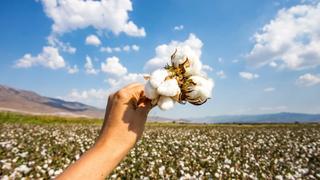A day after the Gujarat government announced bonus for the cotton farmers, spinning millers have raised doubts about the successful implementation of the bonus scheme under procurement by Cotton Corporation of India (CCI).
Cautioning of a possible speculation and delay in the sale of cotton by CCI, M Senthilkumar, chairman, Southern India Mills' Association stated that implementing the cotton bonus system through CCI would hurt the interests of the cotton spinning mills.
"CCI has been historically quoting higher prices than the actual market price and commences sale only after a period of one or two months of procurement. Cotton bonus implementation through CCI would result in speculation, as CCI normally delays the sale of cotton," he said urging the state and Central governments to implement the bonus scheme through Agricultural Produce Market Committees (APMCs) instead.
SIMA chairman alleged CCI of adopting indiscriminate cotton trading policies. "Several hundreds of cotton spinning mills have already become NPAs and most of the stand-alone mills are incurring cash losses," said Senthilkumar.
The fall in yarn export has created surplus domestic supply and therefore, large number of mills across the nation is forced to cut down production by 10 to 30 per cent.
The implementation of cotton bonus system for the farmer in Gujarat through CCI has already inflated the cotton price by few hundred rupees.
The Gujarat government on Wednesday had announced Rs 110 per 20 kg bonus for the cotton growers in the State. As per the announcement, cotton farmers will get additional Rs 110 per 20 kg on the Minimum Support Price (MSP) of Rs 810 per 20 kg when sold to CCI. Only those farmers, selling cotton at the CCI depots will be entitled to get this bonus.
"If the scheme is implemented through APMC, private ginners would immediately procure cotton and there will be a regular flow of supply in the market. Gujarat being the largest cotton growing state in the country, if the cycle of sale is disrupted, it would greatly affect the entire textile value chain," the SIMA chairman stated.
The knitting and garmenting sectors predominantly depend on Gujarat cotton. Stability in prices (slightly lower than international price) coupled with timely continuous availability is a must to sustain the smooth functioning of these sectors.







Comments
Comments have to be in English, and in full sentences. They cannot be abusive or personal. Please abide by our community guidelines for posting your comments.
We have migrated to a new commenting platform. If you are already a registered user of TheHindu Businessline and logged in, you may continue to engage with our articles. If you do not have an account please register and login to post comments. Users can access their older comments by logging into their accounts on Vuukle.